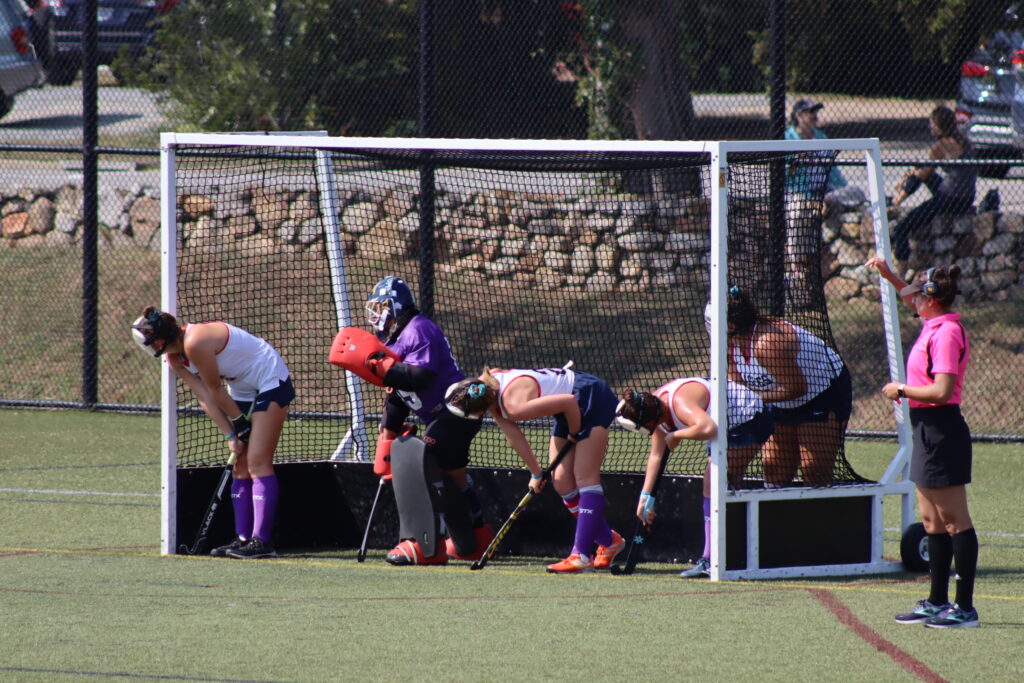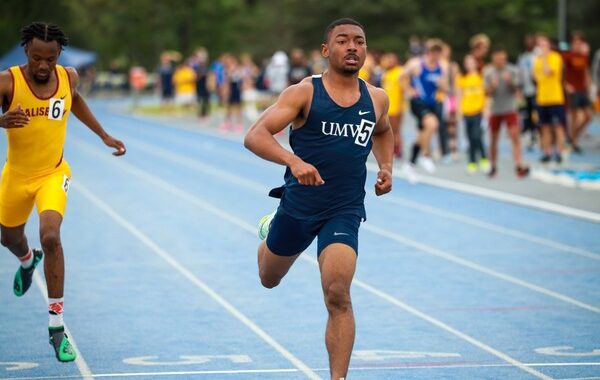Eagles, Let’s Talk: UMW promotes mental health
4 min read
The new initiative will work to support student-athletes in all aspects of daily life. | Sarah Sklar, The Weekly Ringer
by GRACE SCHUMACHER
Copy Editor
This past month, UMW’s Student-Athlete Advisory Council developed the program Eagles, Let’s Talk, which aims to break down the prevalent stigma of discussing mental health within athletics and give UMW student-athletes a safe space to talk about it.
Many student-athletes feel the pressure to be on top of their game, both in and outside of their respective arenas, this battle often taking a toll on students’ health and academic lives. When creating the program, Assistant Athletic Trainer Katie Carnaghi drew influence from her alma mater, James Madison University, who developed the program, “Dukes, Let’s Talk.”
“Eagles, Let’s Talk isn’t just a mental health group,” Carnaghi said. “It’s really a big initiative to support athletes in all aspects of their lives whether that be discussing nutrition, body image, depression, suicide prevention, stress relief, roommate drama, their home lives, all of those things are on the table.”
Each Eagles, Let’s Talk session is planned in advance and a new topic, based on student feedback, is addressed at each meeting.
“We just had a nutritionist come to our last meeting and speak, which was super nice,” said Senior business administration major and Student-Athlete Advisory Council co-president Krista Rodgers.
The UMW Student-Athlete Advisory Council Instagram as well as the Eagles, Let’s Talk Instagram both provide information about when upcoming events are. Additionally, athletic trainers and Student-Athlete Advisory Council representatives share information about the initiative with their coaches and teammates.
Senior business administration and marketing major and Student-Athlete Advisory Council co-president Jackson Popeck said that there was an “exceptional turnout” at the two meetings they’ve had so far.
“I think the biggest obstacle we were worried about was, ‘what if no one comes?’ he said. “We are fortunate to have had the turnouts we did and the discussions were great!”
Next semester, the Student-Athlete Advisory Council hopes to have a more consistent meeting schedule.
“In the spring semester we are going to be having meetings more regularly and are looking to have at least one or two events each month so that we can open it up to more people and have more discussions,” said Carnaghi. “The first event we held, around 35 students attended.”
While Eagles, Let’s Talk is advertised to all athletic teams on campus, it is not mandatory for students to show up, or to talk if they do.
“It is supposed to serve as a safe space for people to come in and have that ability to talk about these topics,” said Carnaghi. “They’re all going through something and are comfortable enough to show up to say, ‘Hey, I’m here to support. I might not be struggling with this, but I’m here to support people who are.’”
If someone feels uncomfortable speaking in a public setting, they can reach out to their coach, Carnaghi or a Student-Athlete Advisory Council representative and get connected with someone to talk to privately.
“I know these topics can be uncomfortable and difficult to talk about,” said Rodgers. “But during these meetings, Katie, and everyone who attends, has been so supportive and kind and makes it such an inclusive environment where people feel comfortable talking about tough topics!”
Many student-athletes rely on friends, family and their coaches for support. Eagles, Let’s Talk acts as an extension of their social support system.
“My sophomore year, I was getting frustrated with my playing time in lacrosse and it was really eating at me,” said Popeck. “This was before Eagles Let’s Talk, but I connected with an alumnus who was a life coach and was able to chat with her about the issues I was having. Having someone to talk to made all the difference!”
Carnaghi joined UMW Athletics in July and began creating the program in August.
“I just graduated from JMU with my master’s,” said Carnaghi. “So when I got hired, I wanted to create a mental health unit. A safe space for athletes. And I modeled it after JMU’s program. I feel like UMW athletes have really joined in and really want to participate.”
Many student-athletes feel pressure to put their team above all else.
“A lot of athletes in general put the team on their back,” said Carnaghi. “But when you are so team-oriented, many feel like ‘Well, I’m injured and I’m not doing what I came here to do,’ or ‘I’m not helping the team how I’ve been able to help the team and now, maybe, I don’t feel like I’m a part of the team.’ … And that can be reflected in grades and how they treat their bodies.”
Carnaghi hopes to redefine what talking about mental health looks like by providing the appropriate information and education to build student-athletes’ skills and knowledge about mental health-related topics.
“Mental health can be seen as a sign of weakness, when in reality, it is not at all a sign of weakness. It is something that a lot of people struggle with,” she said.
In April, Eagles, Let’s Talk plans on hosting a session for graduating seniors about transitioning from college athletics into the real world.
Popeck is eager to see a change in the way mental health is approached at UMW.
“Student-athlete mental health is a very overlooked topic nationwide,” said Popeck. “Katie spearheaded this initiative in order to get our athletes talking about their mental health and it gives athletes an opportunity to come together and share their experiences and how they have overcome their struggles.”











